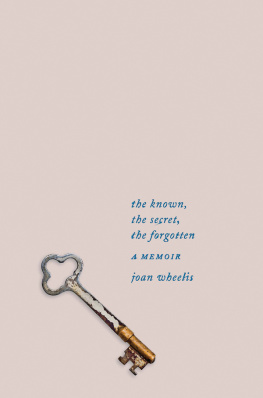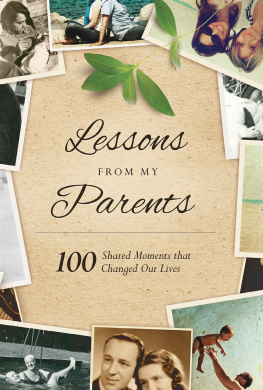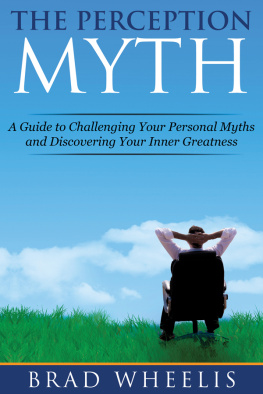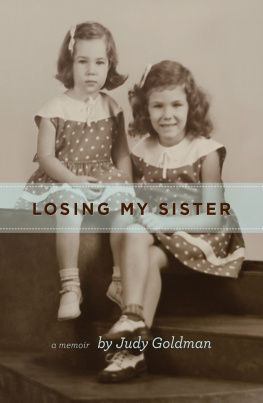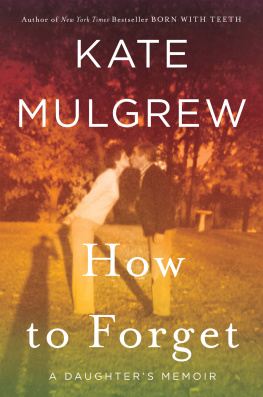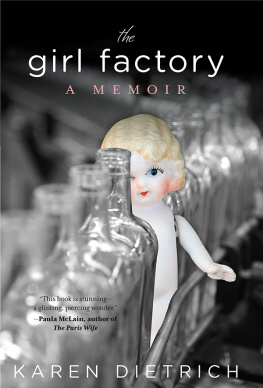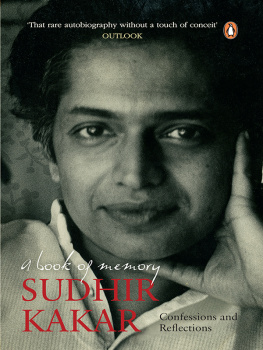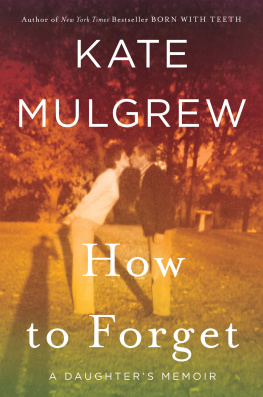Contents
Guide

the known,
the secret,
the forgotten
A MEMOIR
JOAN WHEELIS

Copyright 2019 by Joan Wheelis
All rights reserved
First Edition
From LOOK HOMEWARD, ANGEL by Thomas Wolfe. Copyright 1929 by Charles Scribners Sons. Copyright renewed 1957 by Edward C. Aswell, Administrator, C.T.A. and/or Fred W. Wolfe. Reprinted with the permission of Scribner, a division of Simon & Schuster, Inc. All rights reserved.
For information about permission to reproduce selections from this book, write to Permissions, W. W. Norton & Company, Inc., 500 Fifth Avenue, New York, NY 10110
For information about special discounts for bulk purchases, please contact W. W. Norton Special Sales at specialsales@wwnorton.com or 800-233-4830
Book design by Chris Welch
Production manager: Beth Steidle
The Library of Congress has cataloged the printed edition as follows:
Names: Wheelis, Joan, author.
Title: The known, the secret, the forgotten : a memoir / Joan Wheelis.
Description: First edition. | New York : W.W. Norton & Company, [2019]
Identifiers: LCCN 2018057904 | ISBN 9781324002581 (hardcover)
Subjects: LCSH: Wheelis, Joan. | PsychoanalystsUnited States
Biography. | Women psychoanalystsUnited StatesBiography. |
Parent and childBiography.
Classification: LCC BF109 .W44 2019 | DDC 150.19/5092 [B] dc23
LC record available at https://lccn.loc.gov/2018057904
ISBN 9781324002598 (eBook)
W. W. Norton & Company, Inc., 500 Fifth Avenue, New York, N.Y. 10110
www.wwnorton.com
W. W. Norton & Company Ltd., 15 Carlisle Street, London W1D 3BS
FOR NWG

Remembering speechlessly we seek the great forgotten language,the lost lane-end into heaven, a stone, a leaf, an unfound door. Where? When? O lost, and by the wind grieved,ghost, come back again.
THOMAS WOLFE , Look Homeward, Angel
CONTENTS
the known,
the secret,
the forgotten
I WAS THE MUCH-WANTED DAUGHTER OF TWO PHYSICIANS who trained in psychiatry and practiced psychoanalysis. They were as different from one another as they were similar.
My mother grew up in Vienna, Austria, and my father in Marion, Louisiana. They were both born in 1915 and their birthdays were twelve days apart. They liked to muse that their respective fathers had fought against each other in World War I.
My father grew up in poverty, my mother in privilege. They met in Massachusetts in 1951. They were both married at the time and my father had two small children. Their illicit love affair was passionate and tormented. It took a long time for them to find their way to one another. Guilt, uncertainty and sadness gripped the beginning of their marriage. I was told that my birth fundamentally changed that.
My parents are both dead, yet their lives are very much within me. Time and memory rushing in like waves on distant shores. Pulling shells and stones and crabs out to sea and then tossing them back to shore again. Loudly and then softly. Inexorably.
My son likes to remind me that he and I are all that is left of my parents. The threads of connection, heritage, legacy. The burdens too. This book is dedicated to him.
IN MY HOUSE IN PUGET SOUND IS A LINEN DOILY, WITH A SCALLOPED edge, hand-embroidered flowers, and the words Daisies Wont Tell. My fathers mother, Olive, made it and my father gave it to me. It hangs in the old white house on the wall paneled with Philippine mahogany, once a sea of dark green wallpaper with pink flamingos. The framed doily has not been there long. It moved with me, folded up, from apartment to apartment, and when I had the money, I took it to be properly framed. The framer was unimpressed with the grayed piece of cloth with its irregular shape and slanted hand stitching. He didnt say so, but I could tell by the way he spoke of the expenses involved in framing it, especially the archival glass he thought was a waste of money. I didnt bother to explain to him why it mattered.
In 1908, Anita Owen wrote a song called Daisies Wont Tell. My grandmother married my grandfather on June 19 of the same year. A love song in the form of a waltz, it became a best seller. Sung by Manuel Romain, it was released as a record in 1910.
There is a sweet old story you have heard before
Here among the daisies let me tell it oer
Only say you love me
For I love you well.
Answer with a kiss, dear.
Daisies never tell!
Daisies wont tell, dear.
Come, kiss medo!
Tell me you love me.
Say youll be true
And I will promise always to be tender
And faithful, sweetheart, to thee!
My father was born October 23, 1915. In 1916 a photograph was taken of him sitting in his fathers lap, his older sister, June, sitting on his fathers right knee and my grandmother standing behind the three. Behind her is a hearth and, draped over the mantel, the doily with a clock set at ten minutes past eleven.
I can only imagine that my grandparents had heard the love song, maybe even danced to it. It caught the fancy of the young couple, and my grandmother decided to make the doily with its wreath of daisies and the pithy phrase. During the war my grandparents and their two children moved to army camps in Alabama, Mississippi and Tennessee. In 1919 they moved back to Marion, Louisiana. When my grandfather contracted tuberculosis, they moved to San Antonio, Texas, for the drier climate believed to be beneficial for convalescence. My grandfather died in 1925. My father went to college in Austin, ran a theatre in town for a few years and then left Texas to attend the Columbia University College of Physicians and Surgeons in 1936. I do not know when my father took possession of the doily. Perhaps it was after my grandmother died at age one hundred in 1990, a few months after I was married.
Each time I stand in front of the framed doily and look at the century-old photo of my father, I feel a connection to those frozen in time. It is strange and jarring. I feel vitally linked to the past. Time collapses. Fanciful thoughts cross my mind that with the doily, the photo and the right incantation I might step into the past and be with those pictured by the hearth. Or perhaps I could pull them out of the photograph to be with me in the present. Spirits standing with me looking at the doily on the wall.
I HAD A FRIEND FROM THE PACIFIC NORTHWEST WHO TOLD ME that he felt himself to be a part of the soft, deep paths of Douglas fir needles, Oregon grape and salal, the frigid waters of Puget Sound with its seals, seaweed, salmon and jellyfish, the beach with the sand dollars, herons, ospreys and kingfishers. Once when we went swimming together in the cold, clear water in the late afternoon sun, he said, Swimming here I can feel the spirit of the Sound. We are part of the earth where time and memory settle. He quoted T. S. Eliot: We have lingered in the chambers of the sea / By sea-girls wreathed with seaweed red and brown / Till human voices wake us, and we drown.
He lived each day as part of the earth he so deeply loved. He died a very old man playing with his grandchildren. We held his memorial service in the woods where the air was moist and rich with the scent of evergreens.
His grandson and I were setting up plastic chairs for the guests when a buck with a huge rack walked by. Slowly, stately, just a few feet away. He seemed to come from nowhere, paused, turned to look at us and then vanished silently into the dense brush as suddenly as he had appeared.

